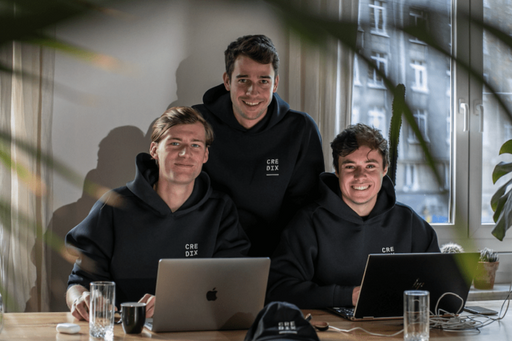
Credix Finance Pioneers Insurance-Protected Credit Lending on Solana for Colombian Farmers
Credix Finance debuts a Solana-based credit pool for Colombian farmers, promising an 11% yield. Bridging DeFi and traditional finance, this move lets backers use receivables for credits, signaling a future where finance is more transparent and efficient.
- Published:
- Edited:
Decentralized finance (DeFi) continues to reshape the financial landscape with innovations that promise greater efficiency and inclusivity. In a recent groundbreaking move, Credix Finance announced its foray into insurance-protected private credit lending for Colombian farmers, powered by the Solana blockchain.
Solana-Based Lending Pool
The newly opened private credit lending pool is projected to yield nearly 11% annually for investors who are backing the credit with receivables. Credix is optimistic that the pool's value might skyrocket to an impressive $150 million in the forthcoming months, given the robust capital demand observed in Colombia.
The Convergence of DeFi and Traditional Finance
This innovative offering emerges at a time when the lines between DeFi and mainstream finance are blurring. We're witnessing an era where crypto-centric entities collaborate with legacy financial giants to port traditional financial tools, such as bonds and private credit (frequently termed as real-world assets or RWAs), onto the blockchain.
The potential for tokenized RWAs is vast. A recent report by the Boston Consulting Group suggests that by 2030, the market for RWAs could lie somewhere between $4 trillion and $16 trillion. This projection underscores the untapped potential of blending conventional finance with DeFi paradigms.
Growing Demand for RWAs
There's been a palpable uptick in the appetite for RWAs among digital asset investors. This surge is partly driven by the desire to tap into the lucrative yields of traditional lending markets, and partly by the disillusionment stemming from last year's volatile crypto lending sphere.
Operational Framework and Benefits
The loans are underwritten and originated in Colombian pesos by the Colombia-based fintech firm, Clave, and its partner, Liquitech. These are then securitized via a bankruptcy remote trust, with the receivables being used as collateral. The final private note transaction is settled on the Credix platform, facilitated through the USDC stablecoin. Furthermore, CESCE Colombia, an offshoot of the Spanish Export Credit Agency, ensures that these receivables are insured, adding an extra layer of security to the process.
Thomas Bohner, the CEO of Credix, expressed his enthusiasm for the initiative, highlighting its dual benefits: "This groundbreaking initiative not only brings a unique offering to the market but also holds power to make a significant social and economic impact by providing crucial financial support to farmers in Colombia."
For accredited investors, the value proposition is enticing. They can deposit their USDC stablecoin in the pool and anticipate an 11% annualized yield. This is a stark contrast to the 2.6% yield that lenders might obtain from DeFi protocol Aave, as per data from DefiLlama.
Inaugural Investors
The Solana Foundation, a non-profit dedicated to bolstering the Solana ecosystem, and Keyrock, a prominent digital asset market maker, are among the first to invest in this pioneering pool.
Conclusion
The amalgamation of DeFi innovations and traditional lending mechanisms, as demonstrated by Credix Finance, offers a compelling glimpse into the future of finance—a future where technology-driven solutions might pave the way for greater transparency, efficiency, and inclusivity.


